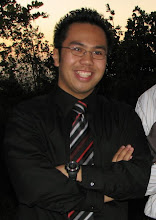 Above: Michael J. Fox on the cover of his latest book, Always Looking Up.
Above: Michael J. Fox on the cover of his latest book, Always Looking Up."Simple things can change the world -
be the difference you want to see in the world."
Sam Malek, Extreme Makeover: Home Edition
Optimism has definitely been my "cuppa tea." To me, its quite an interesting concept: How can people who face battles where the odds are against them possibly see a light at the end of the tunnel. I think that strong optimists are goal makers who love to think of the extreme, and perhaps the impossible. Some people term these ideas "blue sky." (I love thinking of it this way: Without blue sky ideas, how can one possibly enjoy the sunshine?)
(One of my fellow med students has given me the nickname Mr. Sunshine, by the way.)
I finished Always Looking Up, by Michael J. Fox a few weeks ago. I loved the subtitle he threw on the book: The adventures of an Incurable Optimist. The obvious meaning first strikes: his optimism is shadowed by a lack of a cure for his condition of Parkinson's. However, I can see him meaning optimism has become such a stronghold of his life, he just can't let go of it. I think Mr. Fox does a great job of showing how it gets him through life and through his foundation and the values he advocates (not only through his public life but through his family).
It got me to think,there have been times I haven't felt a strong sense of optimism surrounding me during my medical school career. And for an optimist like myself, negativity is like kryptonite. I can recall examples: seeing motivations for studying simply driven by potential failure, healthcare agendas in congress seeming more like battlefights to avoid the worst, and even today's doctors simply saying that they either joined a specialty simply for the "lifestyle" or complain about the profession becoming a defensive one, saying our job is basically to avoid being sued.
No, it's not bad to assume the worst or to be realistic. It becomes a problem when one gets infatuated with negative ideas.
Even in the light of those ideas, I still believe medicine is about optimism. I could ask myself: Why should we take care of people, even if the odds are bad? Because, there's hope that person can continue to live life potentially to do something great. I believe that everyone has a right to go on and do something amazing, for themselves (e.g. go explore a place one has never been to before) or even society.
A quick example of the latter: Mom's been on a roll getting me to watch TV. This time it was Extreme Makeover: Home Edition. Sam Malek is a coffeeshop owner in the metro area of St. Louis, Missouri. However, Sam Malek is not your average Starbucks owner. According to Sam, a man who was born premature with cerebral palsy (an umbrella term to describe conditions where damage has occurred in brain areas that affect movement and posture), he was thrown right into a trash can. Today, he goes around with the aid of crutches, but never complains and clearly loves his life. He wanted to give others like him an opportunity he always wanted. He started up a coffeeshop called More Than Coffee, dedicated to employing those who have crutches, wheelchairs or other disabilities who might not find a job elsewhere. His idea was spurned by his philosophy, as quoted above (I love that quote). You know, had nobody taken care of him, I don't think he would have ended up taking that idea to do something that I deem amazing.
And perhaps, I've strolled across another reason why I love medicine. I see it as a field where the work we do teaches (or at least should teach) people about hope and optimism. Through our amazing job, we can teach others to be amazing in their own way too.


